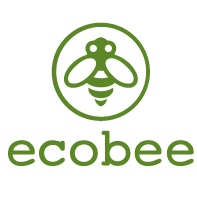Stuart Lombard, ecobee CEO, to share innovative business model during keynote at SES
 Parks Associates recently had an opportunity to talk with Stuart Lombard, CEO of ecobee. The highlights from that conversation, given here, are a preview of the insights that he will share during his keynote address at the Smart Energy Summit.
Parks Associates recently had an opportunity to talk with Stuart Lombard, CEO of ecobee. The highlights from that conversation, given here, are a preview of the insights that he will share during his keynote address at the Smart Energy Summit.
Open APIs - ecobee is one the first thermostat manufacturers to provide fully open APIs, giving public access to the full suite of ecobee capabilities, attracting over 200 developers who are creating solutions from a variety of verticals. Over the years ecobee has received many requests for product enhancements. Many of these requests were narrowly focused on a specific vertical and therefore would never get included in ecobee’s product roadmap. Open APIs allows developers to fill those gaps, creating powerful solutions to a narrow market, enhancing the value of the ecobee product, and accelerating product development. App developers include energy based companies such as Autogrid, Earth Networks, and Integral Analytics. Developers are also integrating the ecobee APIs into smart home systems from SmartThings, Revolv, Vera, and Control4. Other developers are focused on specific verticals, such as vacation home rental management partner, Rental Pro.
Scalable Business Model - Devices must reach critical densities within a specific region in order to access backend revenue. Once critical mass is reached, opening APIs helps eliminate obstacles that can limit new business model opportunities. ecobee uses the APIs as the mechanism to participate in the back end revenue. ecobee’s APIs allow a certain number of calls for free. After that, ecobee collects a small amount of revenue per API call. If an API were to call the thermostat every 15 minutes, the cost to app developer would be approximately $10/year. Rather than negotiating a specific agreement with each developer and working out a separate revenue sharing agreement, the cost per API call is fixed. In some cases, ecobee may elect to customize the business agreement, but most cases use the standard pricing model, which radically simplifies the friction of business transactions that can become a significant bottleneck, slowing app development.
Integration with Smart Home Platforms - ecobee competes in the connected thermostat space as a highly differentiated premium product against Z-Wave and ZigBee thermostats at the low end. Z-Wave and ZigBee products support the lowest common denominator of thermostat features and rely on home control platforms to provide apps and more advanced features. Since the Z-Wave and ZigBee standards evolve very slowly, the pace of innovation for those products is limited and the burden for differentiation falls to the platform. Some platforms understand this dynamic and are moving toward an interface using web services APIs to integrate products with a better price/performance. Platform developers need 4 to 5 key products to drive adoption. Manufacturers need to be among the top 3 vendors in a product category, which likely command 70-80% of the market, in order to attract a home control platform partner. It is not necessary for a platform to offer all choices to consumers. Too much choice makes product acquisition more complicated. Consumers value the choice of several options but not infinite options.
Next: Complimentary Webcast on Feb. 20 Highlights IoT Success Strategies
Previous: Remote Control Appliances with the Smart Power Strip
Comments
-
Be the first to leave a comment.
Post a Comment
Have a comment? Login or create an account to start a discussion.


